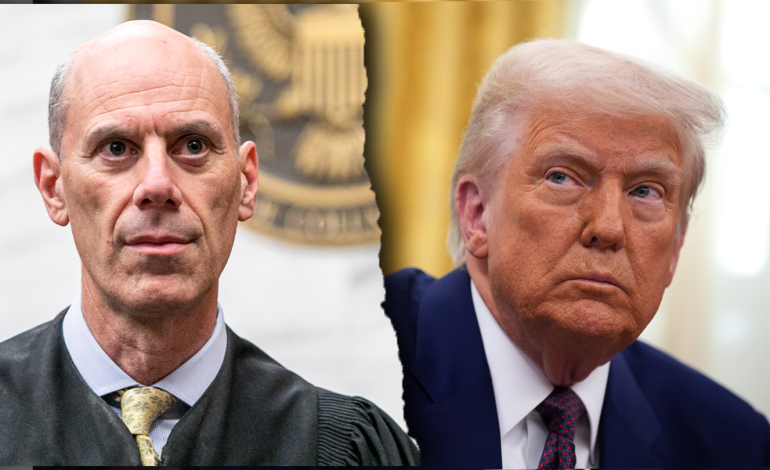A federal judge has ordered the Trump administration to give non-citizens deported under the 1798 Alien Enemies Act the opportunity to challenge their alleged gang affiliations in U.S. court, marking the latest development in a high-profile legal battle over the controversial use of the centuries-old law to expel migrants.
U.S. District Judge James Boasberg issued the 69-page order Wednesday afternoon, ruling that the federal government must “facilitate the Class’s ability to seek habeas relief” — the constitutional right to challenge detention or removal in court. The order applies to hundreds of migrants who were deported earlier this year to a maximum-security prison in El Salvador, many of whom claim they were removed without notice or legal recourse.
“Exactly what such facilitation must entail will be determined in future proceedings,” Boasberg wrote. “Although the Court is mindful that such a remedy may implicate sensitive diplomatic or national-security concerns… it also has a constitutional duty to provide a remedy that will ‘make good the wrong done.’”
The ruling includes Kilmar Armando Abrego Garcia, a Salvadoran migrant and alleged MS-13 member deported in March in what federal officials later admitted was an administrative error. That case sparked national attention and triggered intervention from the Supreme Court.
More than 260 individuals were deported in the first wave of removals to El Salvador, including over 100 Venezuelan nationals alleged to be affiliated with violent gangs such as Tren de Aragua and MS-13. The deportations were executed under President Donald Trump’s reinstated application of the Alien Enemies Act — a law originally passed in 1798 to expel foreign nationals during wartime.
Boasberg began his ruling by drawing a literary parallel to Franz Kafka’s The Trial, invoking the image of a man arrested without explanation.
“Such was the situation into which Frengel Reyes Mota, Andry Jose Hernandez Romero, and scores of other Venezuelan noncitizens say they were plunged on March 15, 2025,” he wrote, criticizing the administration’s mass removals without judicial review.
The judge emphasized that even if the administration correctly applied the Alien Enemies Act and accurately identified the deported individuals as gang members, the deportees were denied the basic legal right to contest those determinations.
“There is simply no way to know for sure, as the CECOT Plaintiffs never had any opportunity to challenge the government’s say-so,” Boasberg wrote.
The Trump administration has repeatedly clashed with Judge Boasberg over the deportation program, especially following his emergency order in March that sought to block removals of Venezuelan nationals and required the return of one deportation flight — a directive that was ignored. Boasberg later found probable cause to hold the administration in contempt, though proceedings were paused by an appellate court.
This week’s ruling is expected to reignite tensions between the judiciary and the White House. Trump officials have previously accused Boasberg of overstepping judicial bounds and undermining national security.
The Supreme Court has already weighed in on aspects of the case, twice ruling that the rapid deportations violated migrants’ due process rights under the Constitution. Legal experts suggest Boasberg’s latest order could force the administration to bring some deported individuals back to the U.S. or set up remote legal proceedings to satisfy constitutional standards.
Judge Boasberg, chief judge of the U.S. District Court for the District of Columbia, has emerged as a central figure in the legal battles over the Trump administration’s renewed immigration crackdown. His rulings have shaped the limits of executive authority under rarely used statutes and raised fundamental questions about due process and civil liberties.










The latest news in your social feeds
Subscribe to our social media platforms to stay tuned